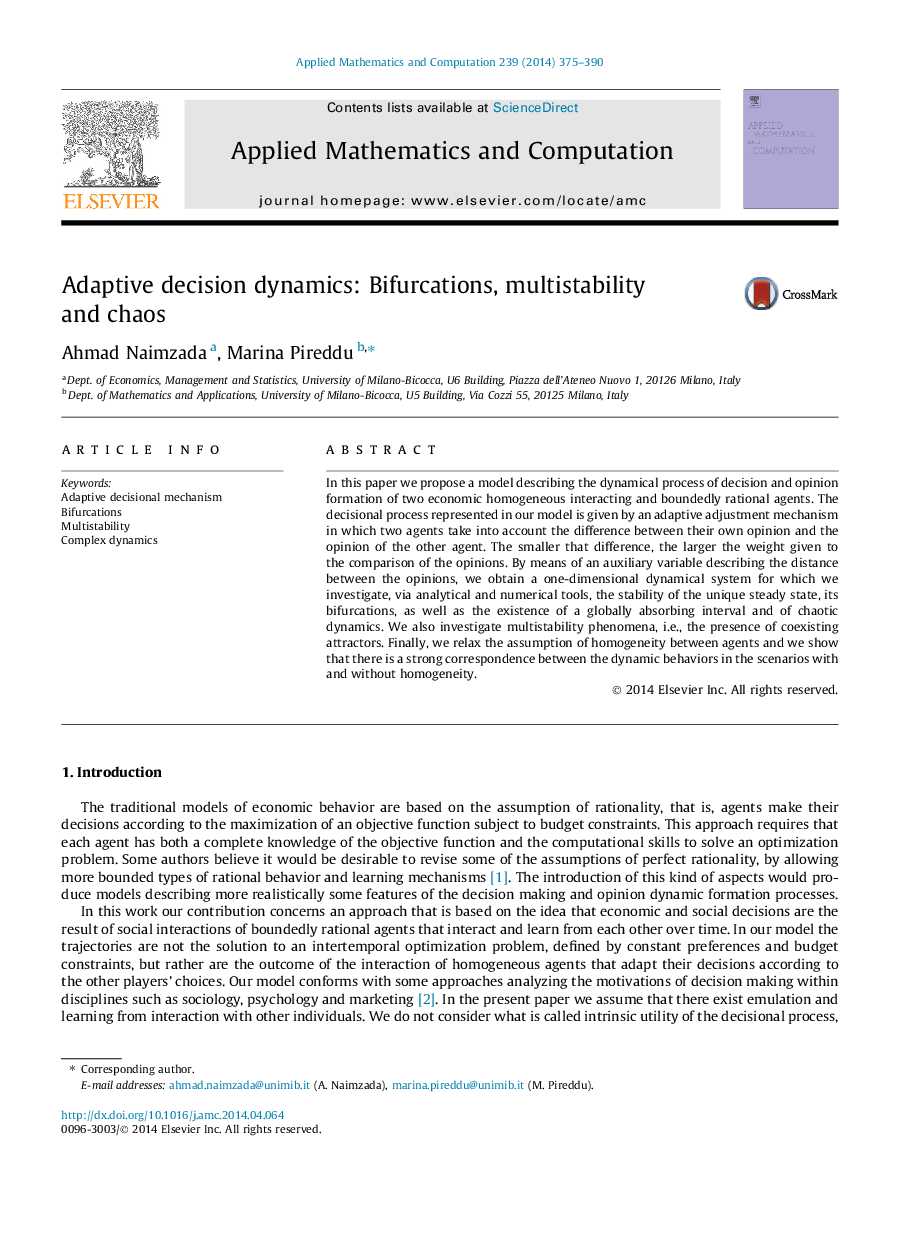| Article ID | Journal | Published Year | Pages | File Type |
|---|---|---|---|---|
| 4628008 | Applied Mathematics and Computation | 2014 | 16 Pages |
In this paper we propose a model describing the dynamical process of decision and opinion formation of two economic homogeneous interacting and boundedly rational agents. The decisional process represented in our model is given by an adaptive adjustment mechanism in which two agents take into account the difference between their own opinion and the opinion of the other agent. The smaller that difference, the larger the weight given to the comparison of the opinions. By means of an auxiliary variable describing the distance between the opinions, we obtain a one-dimensional dynamical system for which we investigate, via analytical and numerical tools, the stability of the unique steady state, its bifurcations, as well as the existence of a globally absorbing interval and of chaotic dynamics. We also investigate multistability phenomena, i.e., the presence of coexisting attractors. Finally, we relax the assumption of homogeneity between agents and we show that there is a strong correspondence between the dynamic behaviors in the scenarios with and without homogeneity.
